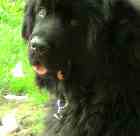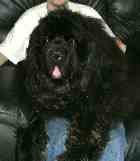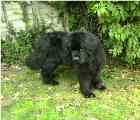Canine Parvovirus
Canine parvovirus, or simply parvo, is spread through direct or indirect contact with faeces. Since the disease can remain in the soil for many months, your puppy must be vaccinated before his little feet can be allowed to touch the ground.
Very young puppies are often unable to have the vaccination, as they still carry an immunity from their mother which will clash with the vaccine. Buying your puppy from anything other than a good, responsible breeder will increase the risk of him contracting this disease, as it is unlikely that puppy farmers will bother to vaccinate their dogs. Do lots of research into the breeder before choosing a puppy to reduce the risk of this heartbreaking disease.
There are two types of the disease, intestinal and cardiac. A dog with the intestinal strain will exhibit signs of vomiting and bloody diarrhea. A dog with the cardiac type will have respitory and cardiovascular problems.
Puppies are far more susceptible to this disease than adult dogs, and if left untreated it has a 90% mortality rate.
If you think your puppy or dog may have contracted this virus, take him to the vet immediately and take his advice. Treatment is available, but it must be administered at once.
Be aware that the virus can remain on your floors and on your clothing for many months. Thoroughly clean all floors and carpets and wash clothes. Also inform your neighbours who have dogs; knowledge could prevent their dogs from getting the disease.
Your puppy will be weaker for 8 to 12 weeks after he has recovered from the illness and his immune system will not be able to fight normal infections. He will need careful monitoring during this time to ensure that he does not contract anything else.



